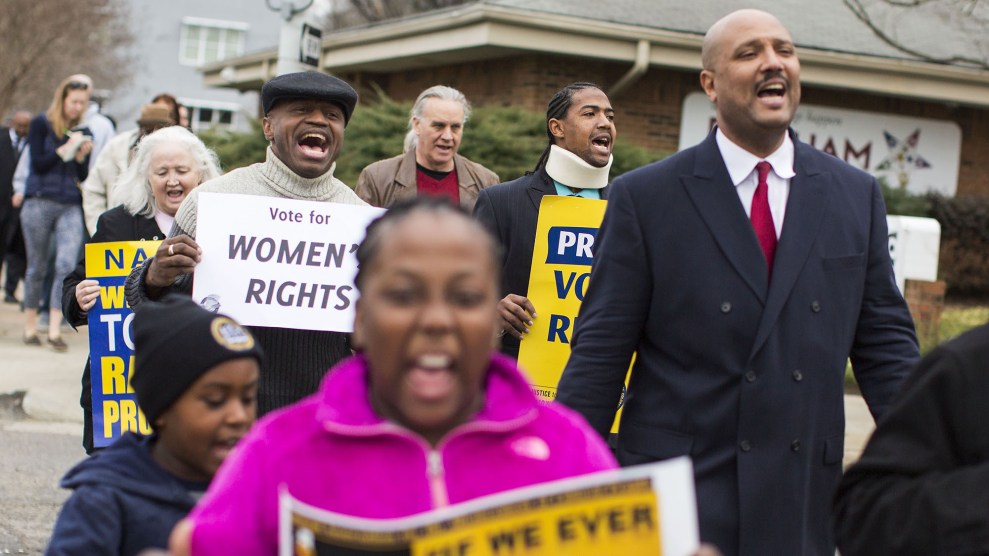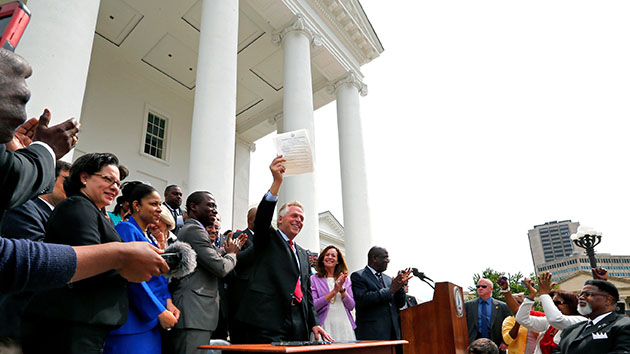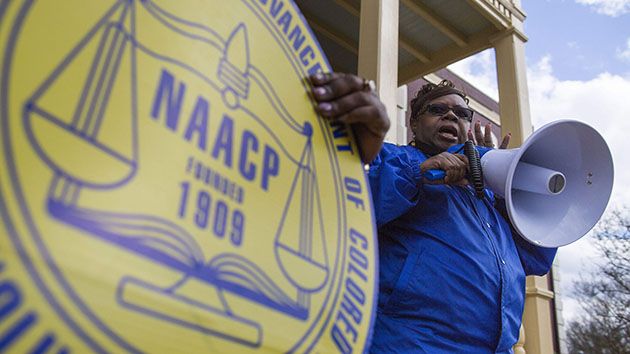
Demonstrators at a voting rights march in March 2016 in Raleigh, North Carolina.Al Drago/ZUMA
Rachel Lears’ new documentary The New Fight for Voting Rights opens with a montage of election lawn signs, the “I Voted” stickers passed out at polling locations, and the voice of the Rev. Dr. William J. Barber II, the president of the North Carolina NAACP, saying, “The right to vote is a right dipped in blood, paid for by the death and the sacrifices.”
Barber is part of a chorus of civil rights leaders, politicians, community organizers, and regular citizens speaking out about voting rights in North Carolina in the wake of a 2013 law that imposed sweeping restrictions on voting. The law, passed by the state’s Republican legislature after the Supreme Court gutted a key portion of the Voting Rights Act, created a voter ID requirement, reduced early voting from 17 days to 10, eliminated same-day registration, and killed a program that preregistered 16- and 17-year-olds to vote. It also prevented ballots from being counted if they were cast in the wrong precinct.
In late April, a federal judge upheld most of those restrictions, putting North Carolina on the front lines of the national battle for voting rights. Although a group of civil rights groups has appealed the decision, the rules could stay in place for the November elections.
Lears hopes her five-minute film can help raise awareness about what’s happening not only in North Carolina, but across the country, where 17 states will have new voting restrictions in place for the November general election. “The fight for access to the ballot is not a new thing in this country,” says Lears, a Brooklyn-based filmmaker who brings an anthropological background to her work. “Most of us assume that the battle was won decades ago.”
Lears and her husband, Robin Blotnick, co-directed The Hand That Feeds, an award-winning, full-length documentary in 2014 that showcased the efforts of low-wage workers trying to secure basic employment rights. For Lears, the voting rights project is significant because it highlights an issue that touches every facet of American politics and society.
“There isn’t any other issue nationally that isn’t affected by the right to vote and choose elected officials from the local to the national level,” Lears says. “If what you care about is police accountability, health care, economic inequality, foreign policy—expanding access to the ballot will make the country more democratic.”
The New Fight for Voting Rights is part of the Take 5: Justice in America series, a collection of five short films commissioned by AMC Networks’ SundanceNow Doc Club, the network’s curated documentary on-demand service that will stream for free online. The pieces are all live at TAKE5.docclub.com.
The network commissioned the pieces to focus on a “significant and widely debated social justice issue,” according to a statement released by AMC, and it hopes the short films that focus on gentrification, the criminal justice system, the working poor, and easy access to guns will be more sharable than longer works.













